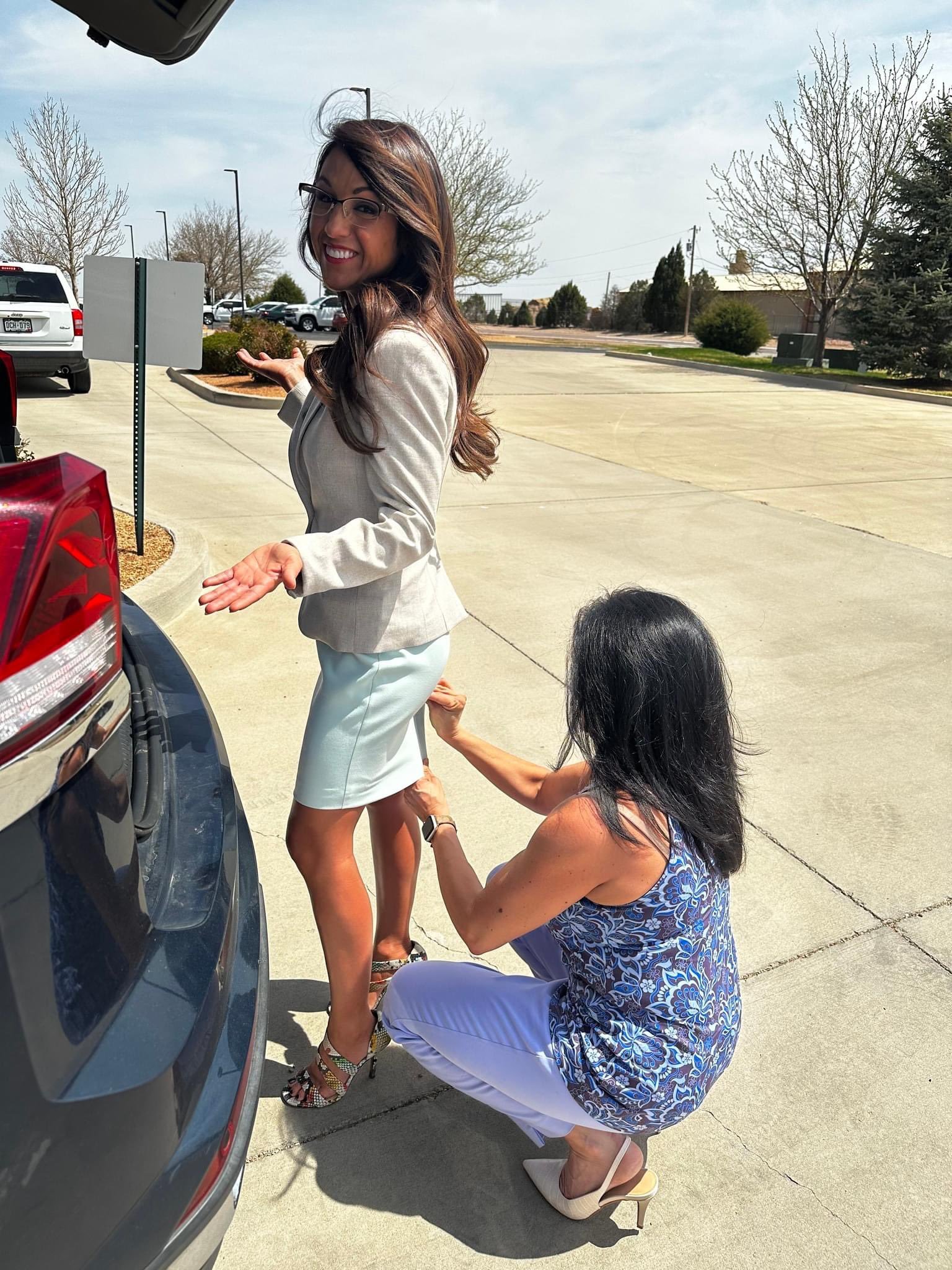Lauren Boebert, a prominent figure in American politics, has once again found herself at the center of controversy. Known for her outspoken nature and unfiltered comments, Boebert continues to generate headlines with her bold statements. Her recent remarks have sparked widespread debate, leaving many questioning the implications of her words and actions.
In this article, we delve into the latest controversy surrounding Lauren Boebert, focusing on her comments about Detroit and their broader context. As discussions around race, politics, and public discourse continue to evolve, understanding the nuances of these incidents becomes increasingly important. Here's what you need to know about Boebert's latest controversial moment.
Boebert's remarks during a visit to the US Capitol raised eyebrows when she reportedly asked a group of Jewish visitors if they were doing. This incident left members of the group confused, as recounted by one rabbi to Buzzfeed News. Despite the confusion, Boebert claimed her comment was intended as a joke. The situation highlights the challenges of humor in sensitive contexts and the potential for misinterpretation in public settings.
Understanding the Context of Boebert's Remarks
The context in which Boebert's comments were made adds another layer of complexity to the situation. Being in a historically significant location like the US Capitol, surrounded by individuals representing diverse backgrounds, underscores the importance of thoughtful communication. Boebert's attempt at humor failed to resonate with her audience, leading to discomfort and concern among those present.
Rabbi David Lipson, who was part of the visiting group, expressed his surprise at Boebert's choice of words. He noted that while the comment may have been unintentional, its impact cannot be overlooked. Such moments serve as reminders of the responsibility public figures bear in shaping respectful and inclusive environments.
As the story unfolded, it became evident that the incident had wider implications beyond mere misunderstanding. It reignited conversations about cultural sensitivity and the role of elected officials in fostering unity amidst diversity. These discussions are crucial in promoting mutual respect across different communities.
Boebert's Defense and Public Reaction
Following the initial backlash, Boebert stood by her statement, asserting that it was merely a joke gone awry. However, critics argue that such comments, regardless of intent, can perpetuate harmful stereotypes and undermine efforts towards inclusivity. This stance has polarized opinions, with supporters defending her right to free expression while detractors emphasize accountability for words that might harm others.
Public reaction to Boebert's defense varied widely. Some praised her for maintaining authenticity despite criticism, viewing her approach as refreshingly honest compared to more guarded politicians. Others criticized her lack of awareness regarding the impact of her words, urging greater consideration before speaking publicly on sensitive topics.
This divide reflects broader societal tensions concerning political correctness versus free speech. As debates persist, they challenge individuals to balance personal freedoms with social responsibilities, particularly within political arenas where influence is significant.
Broader Implications for Political Discourse
Boebert's incident serves as a microcosm of larger issues affecting contemporary political discourse. It raises questions about how best to navigate complex conversations involving identity, culture, and power dynamics. In an era marked by heightened sensitivity and rapid information dissemination, every word carries weight, necessitating careful thought before articulation.
For aspiring leaders and seasoned politicians alike, lessons from incidents like these underscore the value of empathy and strategic communication. By prioritizing clarity and respect, public figures can contribute positively to national dialogues rather than contributing to division.
Ultimately, Lauren Boebert's recent controversy invites reflection on the evolving landscape of political engagement. As society progresses, fostering environments conducive to open yet considerate exchanges will remain essential for building cohesive communities capable of addressing shared challenges effectively.
Examining Missteps in Geographic References
Misstatements concerning geography have also plagued Boebert's public appearances. One notable example involves her erroneous claim that Detroit holds the distinction of having the highest murder rate in Minnesota. Such errors highlight the necessity for accurate information dissemination among policymakers tasked with addressing critical issues like crime prevention.
Social media played a pivotal role in amplifying this particular gaffe, with users quickly pointing out discrepancies between reality and Boebert's assertions. While seemingly innocuous, mistakes of this nature can erode public trust if perceived as indicative of ignorance or negligence regarding factual accuracy.
To mitigate similar occurrences moving forward, emphasis should be placed on thorough research and verification processes prior to making public declarations. Encouraging transparency and accountability ensures credibility remains intact, reinforcing confidence in leadership capabilities amidst scrutiny.

